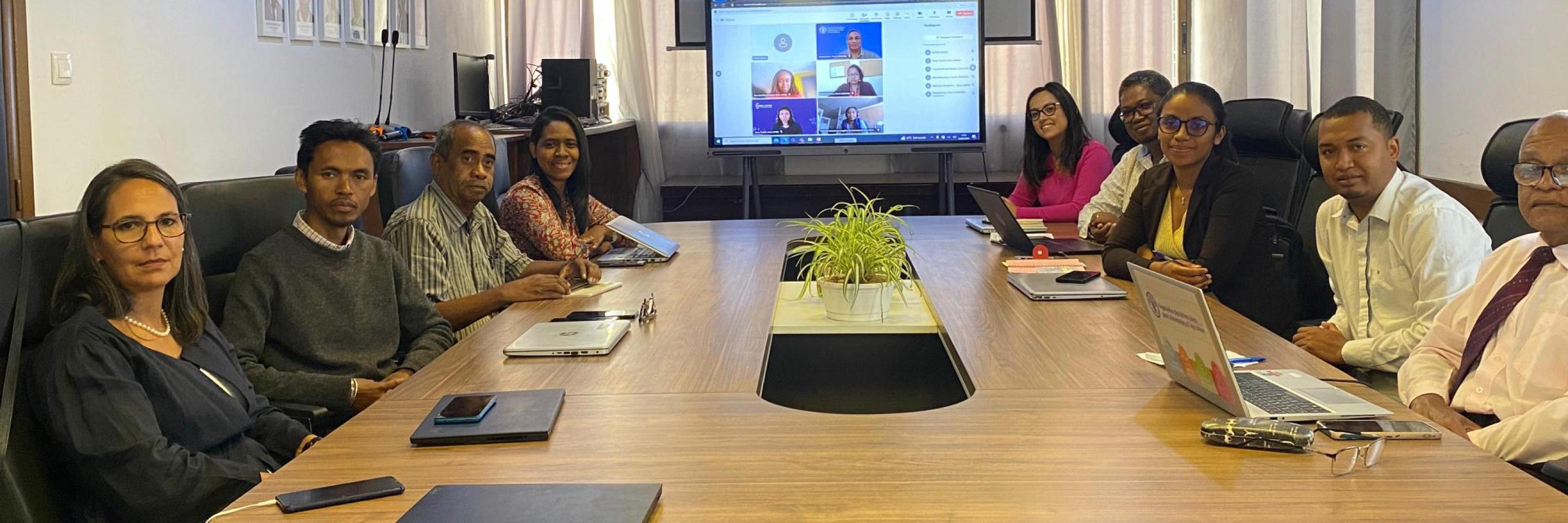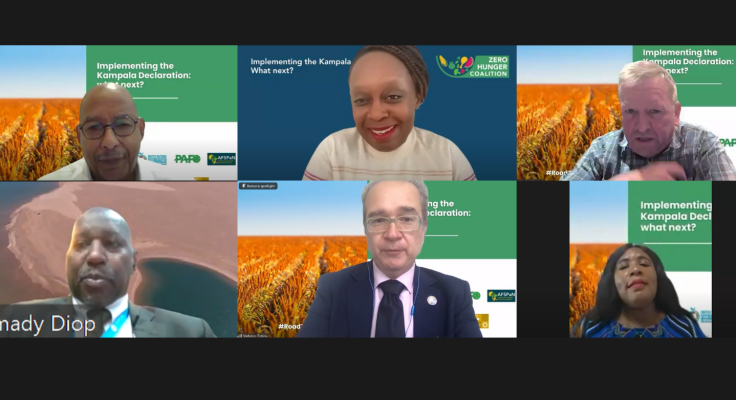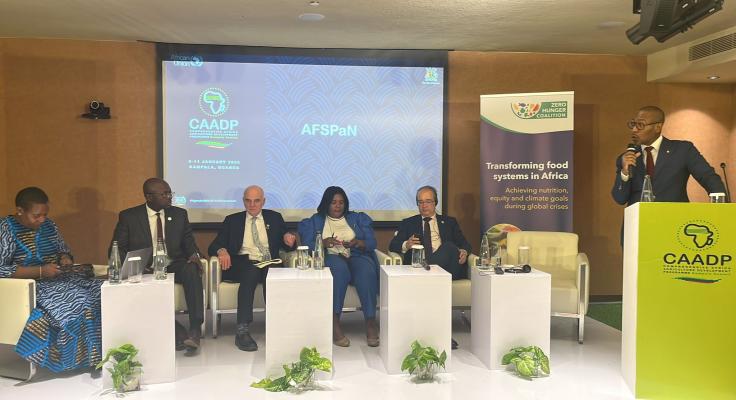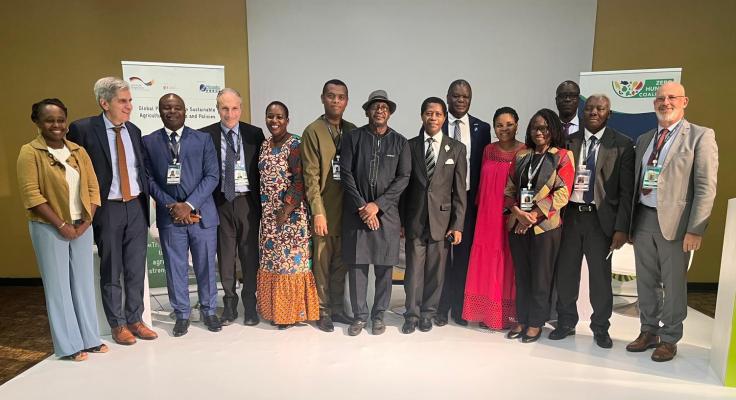
The National Taskforce: a crucial pillar for food system transformation in Madagascar
Today, global food systems are challenged by the complexity resulting from the interconnection between agriculture, nutrition, the environment and the economy.
In Madagascar, this challenge is significant due to the convergence of several major crises: climate change, growing food insecurity, and persistent economic fragility. A profile of food systems conducted by the FAO, the European Union, and CIRAD revealed that despite much potential, major gaps remain. Among them are insufficient agricultural productivity, substantial post-harvest losses, inadequate infrastructure, and limited access to agricultural inputs, particularly for women. In addition, recurring episodes of drought and floods exacerbate already alarming food insecurity. Today, half of the population is food insecure, a figure that has doubled in the past decade.
Within this context, Madagascar is at a decisive crossroads. For this reason, the National Taskforce for Food Systems Transformation has been revitalised, offering a unique opportunity to rethink and transform the country's food systems to allow for more resilience to address current and future crises.
More than a coordination mechanism for food systems transformation
The National Taskforce is more than just a coordination body; it is a true catalyst for transformation. Inspired by the global call to action from the UN Food Systems Summit in 2021, this initiative rallies a broad spectrum of actors – government, UN agencies, technical and financial partners, as well as NGOs – around a common goal: to make Madagascar's food systems more resilient, inclusive and sustainable. Designed to rethink the country's food systems through close coordination, the Taskforce created a framework for reflection which has led to the adoption of the National Roadmap for Food Systems Transformation, a foundational document outlining the main actions to be undertaken. Developed with the input of over 700 stakeholders during inclusive national consultations, this roadmap is based on three essential pillars:
Promoting access to diverse, healthy and nutritious food;
Encouraging equitable governance that supports resilient livelihoods; and
Fostering climate-resilient agricultural production to ensure the sustainability of natural resources.
However, operationalising the Roadmap remained a challenge. Despite initial commitment and progress, several obstacles hindered its effective implementation. This included the absence of a detailed operational plan, resulting in fragmented efforts and scattered resources. These difficulties were also linked to the complexity of food systems themselves, which involve a multitude of actors with sometimes divergent interests – from local producers to policymakers and financial partners. The lack of coherence between local and national initiatives also slowed the achievement of the Roadmap’s goals.
A strategic platform
In this context, the Ministry of Agriculture and Livestock reinvigorated the National Taskforce, considering it a key solution to overcoming these obstacles with the aim of harmonising efforts and creating a strong space for coordination between the stakeholders. By refocusing actions around clear and common priorities, the Taskforce has since become a catalyst for food systems transformation, providing a structured response to operationalisation challenges. By mobilising key actors, it has helped refine strategies and organize interventions more coherently.
Through a collaborative and integrated approach, the Taskforce ensures that solutions are not only adapted to local realities but are also supported by international expertise. In this regard, the Zero Hunger Coalition has played a crucial role by providing detailed studies on the costs and the evidence needed to make this transformation effective.
In addition, the Taskforce has become an active platform for the strategic implementation of actions defined in the Roadmap and its future action plan. It ensures that each initiative aligns with established priorities, thereby guaranteeing a more targeted and effective approach. Notable achievements include the improvement of agricultural statistics, the integration of technological innovations and the strengthening of urban resilience. Initiatives include the drought warning system in the Grand South, agricultural digitalisation, and the establishment of food banks.
The Taskforce also plans to strengthen its monitoring mechanisms by using digital tools. This will allow for the measurement of progress and to adjust strategies based on results. At the same time, the creation of specialized sub-task forces in key areas, such as agriculture and nutrition, will ensure more rigorous implementation of the defined priorities.
The Taskforce also offers its members a platform to reflect on how the integration of food systems transformation and the fight against climate change will be central to its long-term strategy. Madagascar's resilience to climate and food crises will depend on developing a strong linkage between these two dimensions.
Inclusivity at the heart of the action
The commitment to inclusivity is a fundamental aspect of the Taskforce's approach. Food systems cannot be transformed sustainably without including the voices of the most vulnerable communities, particularly small producers, women and youth. This inclusiveness ensures that the proposed solutions not only address local needs but are also fair and equitable. Stakeholder consultation remains essential in this process.
The National Taskforce embodies a new dynamic approach, offering a strategic and operational framework that allows for a genuine transformation of food systems in Madagascar. However, its success depends on the commitment and collaboration of all stakeholders. It is imperative that partners continue to support the Taskforce's efforts by providing the necessary resources and innovations to ensure a sustainable transition toward resilient, equitable and sustainable food systems.
The National Taskforce is composed of the Ministry of Agriculture and Livestock, the National Nutrition Office, the United Nations Office in Madagascar, the FAO, the World Food Programme, UNICEF, IFAD, and is supported by Agsys and the Shamba Centre for Food & Climate.



